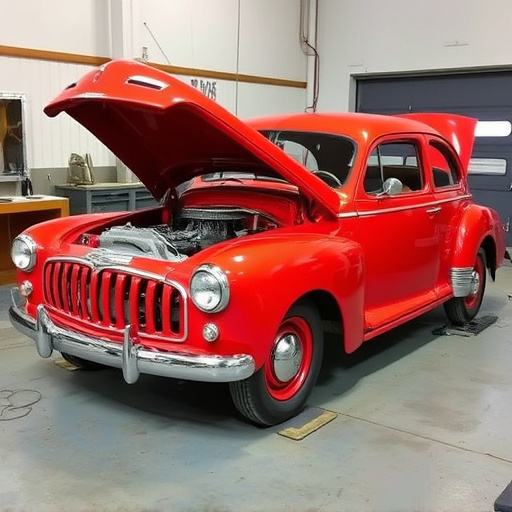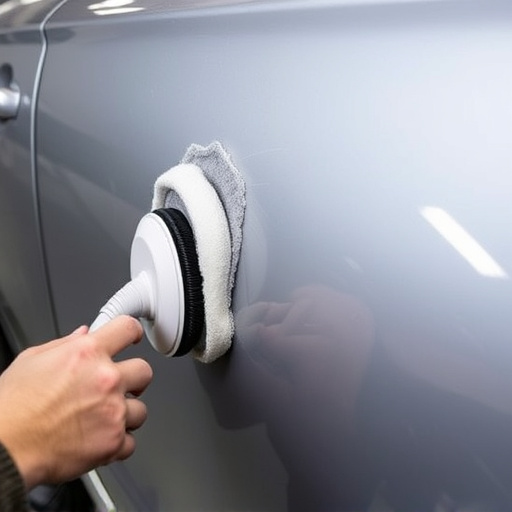Before insurance company negotiations, thoroughly review your policy for terms, exclusions, and coverage limits, especially regarding desired repairs like scratch or dent fixes. Gather documentation on vehicle's pre-claim value and common negotiation tactics. Master communication with active listening, clear language, empathy, and visual aids to reach mutually beneficial agreements.
Mastering insurance company negotiations is a powerful skill to have, especially when advocating for your interests. This guide equips you with the tools to navigate complex conversations effectively. First, understand your policy and claims inside out. Next, prepare meticulously by gathering essential documents and researching industry trends. Finally, refine communication skills to build rapport and present your case persuasively. By combining these strategies, you’ll approach insurance company negotiations with confidence and a strategic edge.
- Understand Your Policy and Claims
- Research and Prepare Beforehand
- Master Effective Communication Techniques
Understand Your Policy and Claims

Before stepping into any insurance company negotiations, it’s paramount to have a deep understanding of your policy and claims process. This involves thoroughly reviewing your insurance policy document, familiarizing yourself with terms, exclusions, and coverage limits. Knowing exactly what is and isn’t covered will empower you during discussions.
For instance, if you’re seeking compensation for car scratch repair or dent repair through body shop services, ensure that these specific incidents are within the scope of your policy’s coverage. Understanding the value of your vehicle before filing a claim also plays a significant role in navigating negotiations successfully. This knowledge will help you advocate for fair compensation and avoid misunderstandings or rejections during the claims process.
Research and Prepare Beforehand

Before stepping into any negotiation with an insurance company, thorough research and preparation are key. Start by understanding the ins and outs of your policy—what it covers, what’s excluded, and any specific clauses related to repairs or replacements. Knowing your rights and the company’s obligations is a strong foundation for effective communication. Delve into common practices in insurance company negotiations; study strategies used by both sides to gain insights into potential tactics.
Additionally, preparing for specific scenarios will help calm nerves. If you’re dealing with a claim for car body repair or fender repair, gather all necessary documentation—photos, estimates from trusted auto body shops, and any relevant information that supports your case. This demonstrates your preparedness and commitment to ensuring the best outcome. Remember, being informed and organized is a powerful tool in any negotiation, especially when navigating complex insurance company interactions.
Master Effective Communication Techniques

Mastering effective communication is a cornerstone of successful insurance company negotiations. It’s not just about presenting your case; it’s about understanding and persuading the other party. This involves active listening—truly hearing what the adjuster says, asking clarifying questions, and demonstrating empathy for their position. It also means tailoring your message to suit the listener, using clear and concise language free from industry jargon, ensuring everyone is on the same page.
Visual aids can be powerful tools in negotiations, especially when dealing with claims like car dent repair or scratch repair. Presenting before-and-after photos of auto maintenance work can make a compelling case for your needs. This visual evidence not only simplifies complex issues but also fosters a collaborative environment, encouraging the insurance company to see things from your perspective and reach a mutually beneficial agreement.
Applying expert insurance company negotiations skills requires a deep understanding of your policy, thorough preparation, and masterful communication techniques. By arming yourself with knowledge about your claims, researching industry standards, and adopting effective conversational strategies, you’ll be well-equipped to navigate complex discussions with insurance providers. Remember, successful negotiation is not just about getting the best deal; it’s also about advocating for your rights and ensuring fair compensation when facing unexpected events. Master these skills, and you’ll turn the tables on negotiations, achieving outcomes that protect and benefit you in the long run.














